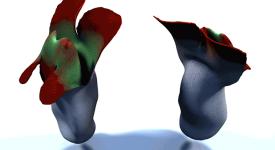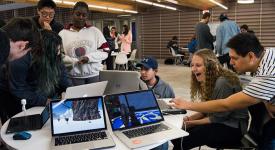Researchers Win Best Paper Award for Mobile Acoustic Imaging Technique
06/20/2018 - A team of computer science researchers consisting of professor Lili Qiu and her Ph.D. students Wenguang Mao and Mei Wang won the Best Paper Award last week at MobiSys 2018 for their work in creating a system that can perform acoustic imaging with a smartphone.









